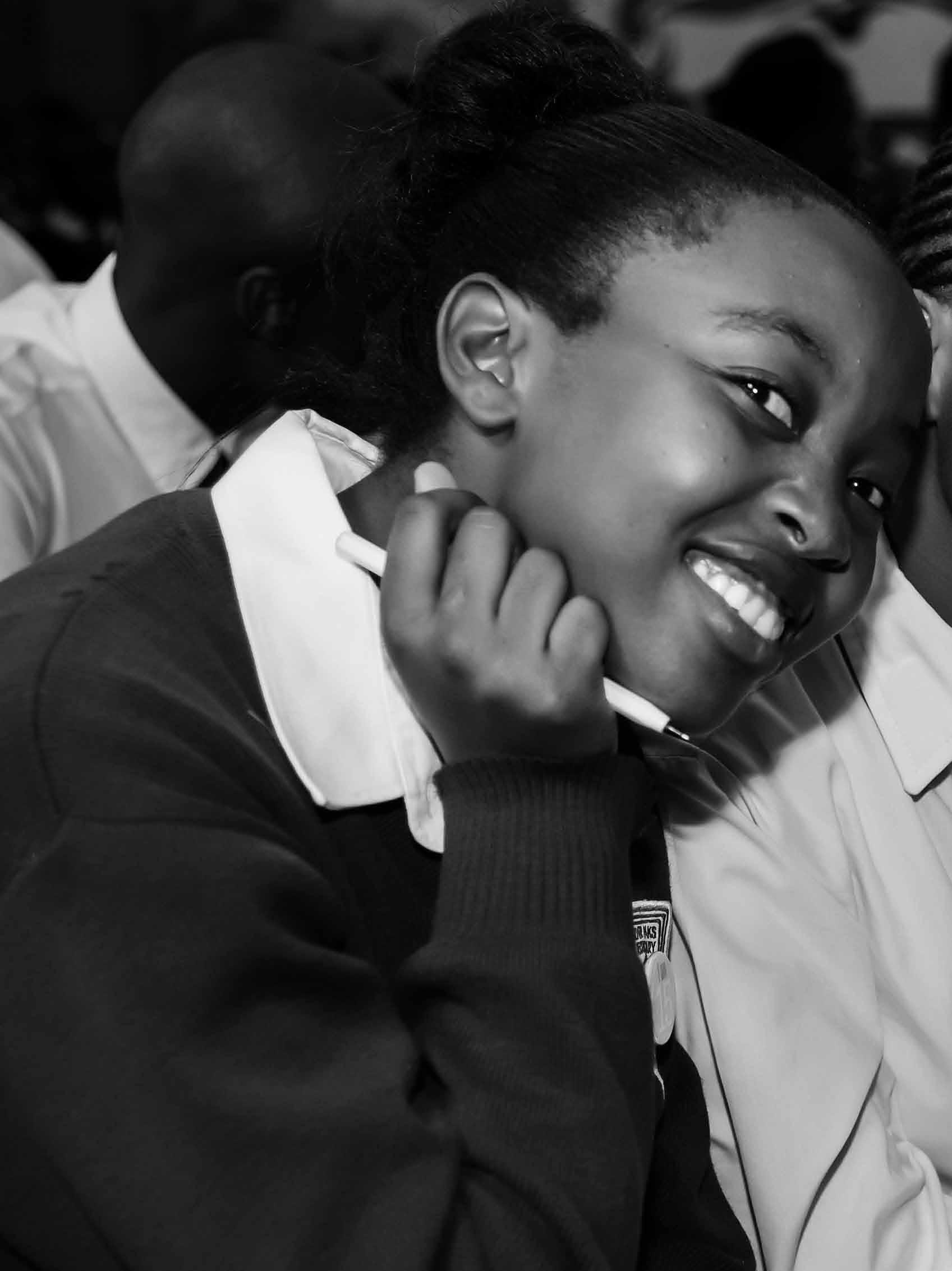
1 minute read
thinK aGain
section 3
thinK aGain
Rethinking assumptions about gender and education: What the research tells us...

Section 2 explored how the disruptions that learners face in their homes, schools and neighbourhoods are shaped by their gender and other social inequalities. Gender matters for the ways that learners experience violence, familial expectation, the learning environment and their relationships with peers.
The previous section also demonstrated how narratives of gender and schooling in South Africa are dominated by powerful assumptions. These assumptions have meant that the experiences of boy and girl learners are often oversimplified or misunderstood, creating unhelpful stereotypes that can make their journeys through school more difficult.
This section offers a more nuanced picture of the role of gender in South African schooling. The findings presented here may not fit neatly into societal assumptions about the experiences of boys and girls in school or the stereotypical factors influencing their disengagement. By exploring how common assumptions about gendered experiences differ from what the research says, policymakers and role-players in the basic education sector may be in a better position to build gender-responsive dropout prevention efforts.








